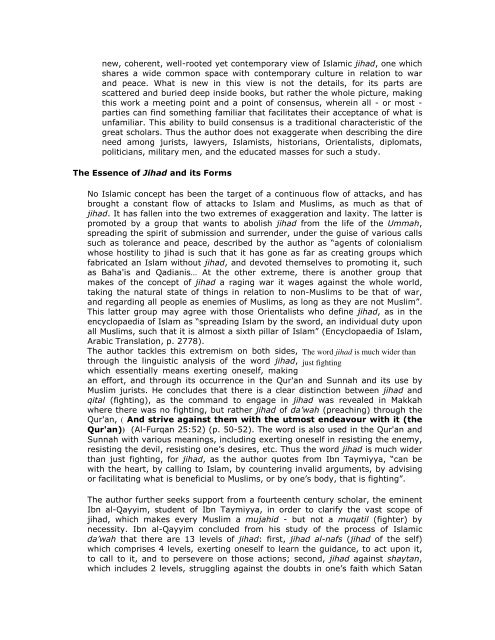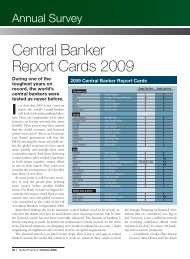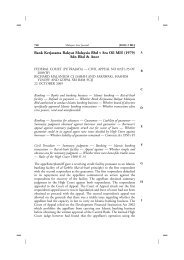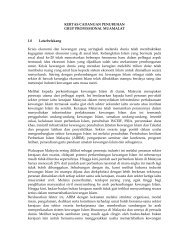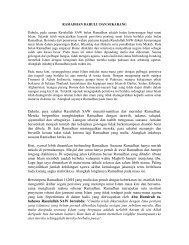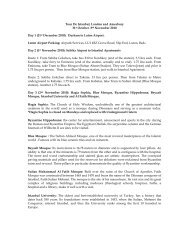Fiqh al Jihad Sheikh Yusuf al Qaradhawi
Fiqh al Jihad Sheikh Yusuf al Qaradhawi
Fiqh al Jihad Sheikh Yusuf al Qaradhawi
You also want an ePaper? Increase the reach of your titles
YUMPU automatically turns print PDFs into web optimized ePapers that Google loves.
new, coherent, well-rooted yet contemporary view of Islamic jihad, one which<br />
shares a wide common space with contemporary culture in relation to war<br />
and peace. What is new in this view is not the details, for its parts are<br />
scattered and buried deep inside books, but rather the whole picture, making<br />
this work a meeting point and a point of consensus, wherein <strong>al</strong>l - or most -<br />
parties can find something familiar that facilitates their acceptance of what is<br />
unfamiliar. This ability to build consensus is a tradition<strong>al</strong> characteristic of the<br />
great scholars. Thus the author does not exaggerate when describing the dire<br />
need among jurists, lawyers, Islamists, historians, Orient<strong>al</strong>ists, diplomats,<br />
politicians, military men, and the educated masses for such a study.<br />
The Essence of <strong>Jihad</strong> and its Forms<br />
No Islamic concept has been the target of a continuous flow of attacks, and has<br />
brought a constant flow of attacks to Islam and Muslims, as much as that of<br />
jihad. It has f<strong>al</strong>len into the two extremes of exaggeration and laxity. The latter is<br />
promoted by a group that wants to abolish jihad from the life of the Ummah,<br />
spreading the spirit of submission and surrender, under the guise of various c<strong>al</strong>ls<br />
such as tolerance and peace, described by the author as “agents of coloni<strong>al</strong>ism<br />
whose hostility to jihad is such that it has gone as far as creating groups which<br />
fabricated an Islam without jihad, and devoted themselves to promoting it, such<br />
as Baha'is and Qadianis… At the other extreme, there is another group that<br />
makes of the concept of jihad a raging war it wages against the whole world,<br />
taking the natur<strong>al</strong> state of things in relation to non-Muslims to be that of war,<br />
and regarding <strong>al</strong>l people as enemies of Muslims, as long as they are not Muslim”.<br />
This latter group may agree with those Orient<strong>al</strong>ists who define jihad, as in the<br />
encyclopaedia of Islam as “spreading Islam by the sword, an individu<strong>al</strong> duty upon<br />
<strong>al</strong>l Muslims, such that it is <strong>al</strong>most a sixth pillar of Islam” (Encyclopaedia of Islam,<br />
Arabic Translation, p. 2778).<br />
The author tackles this extremism on both sides,<br />
through the linguistic an<strong>al</strong>ysis of the word jihad,<br />
which essenti<strong>al</strong>ly means exerting oneself, making<br />
The word jihad is much wider than<br />
just fighting<br />
an effort, and through its occurrence in the Qur'an and Sunnah and its use by<br />
Muslim jurists. He concludes that there is a clear distinction between jihad and<br />
qit<strong>al</strong> (fighting), as the command to engage in jihad was reve<strong>al</strong>ed in Makkah<br />
where there was no fighting, but rather jihad of da’wah (preaching) through the<br />
Qur'an, ( And strive against them with the utmost endeavour with it (the<br />
Qur'an)) (Al-Furqan 25:52) (p. 50-52). The word is <strong>al</strong>so used in the Qur'an and<br />
Sunnah with various meanings, including exerting oneself in resisting the enemy,<br />
resisting the devil, resisting one’s desires, etc. Thus the word jihad is much wider<br />
than just fighting, for jihad, as the author quotes from Ibn Taymiyya, “can be<br />
with the heart, by c<strong>al</strong>ling to Islam, by countering inv<strong>al</strong>id arguments, by advising<br />
or facilitating what is benefici<strong>al</strong> to Muslims, or by one’s body, that is fighting”.<br />
The author further seeks support from a fourteenth century scholar, the eminent<br />
Ibn <strong>al</strong>-Qayyim, student of Ibn Taymiyya, in order to clarify the vast scope of<br />
jihad, which makes every Muslim a mujahid - but not a muqatil (fighter) by<br />
necessity. Ibn <strong>al</strong>-Qayyim concluded from his study of the process of Islamic<br />
da’wah that there are 13 levels of jihad: first, jihad <strong>al</strong>-nafs (jihad of the self)<br />
which comprises 4 levels, exerting oneself to learn the guidance, to act upon it,<br />
to c<strong>al</strong>l to it, and to persevere on those actions; second, jihad against shaytan,<br />
which includes 2 levels, struggling against the doubts in one’s faith which Satan


